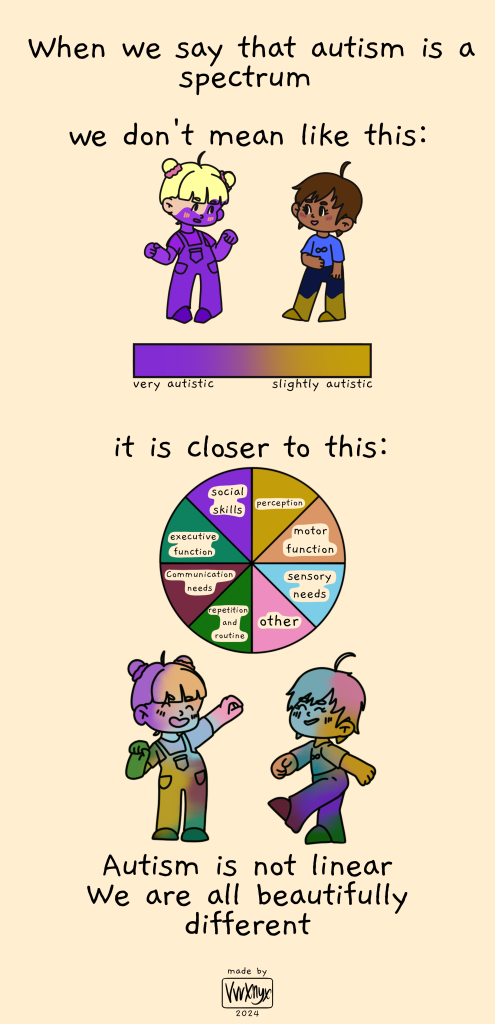Phone: 01825 769000 | Email: info@springharvest.org
Phone: 01825 769000 | Email: info@springharvest.org
Spring Harvest is working towards the removal of barriers that prohibit disabled guests from full participation and inclusion in the event. Please look out for guests who may need extra help.
The following links take you to some important information which we encourage you to read in preparation for your role at Spring Harvest.
Welcoming is an important Christian ministry in a world where disabled people often find a
lack of inclusion. A warm welcome embodies the Christian message.
Never assume anything; always ask the disabled person.
Don’t assume. Always ask.
Autism is a ‘Neurodiversity’, one of many other neurodiversity’s. An autistic person is referred to as being ‘Neurodivergent’. Being autistic is not all negative, there can be many positives too!
There are lots of myths surrounding autism, such as:
Many of our guests are autistic. They will choose where they are most comfortable to be, especially in the evening celebrations. Being able to walk around venues beforehand might be helpful and they may need information to inform that choice. The Disability Consultant will be able to help with this.
Seminars and workshops: There may not be any issues, but lots of movement, inconsistent lighting and repeating sounds may make things difficult. Don’t be surprised if some walk around to find the best place, or opt to walk up and down at the back. Some may ask for notes to help them follow what is being said (listening is hard with the constant whir of the heating in some venues). The tech teams in the venues will know the quieter spots in their venue, so ask their advice.
Questions may be blunt and precise; give clear and concise answers.
Across the resort: If an autistic person becomes overwhelmed and distressed in an area where you can help, having lots of people offer help can be even more overwhelming. So, make sure only one person supports quietly and with as little intrusion as possible. Some autistic people carry a card with instructions that they will place next to them.
Eye contact is often painful and social pleasantries may not be top of their agenda.
Families who have autistic children: Having an autistic child is not a tragedy. But lots of people see the struggles and assume it is. Some will assume an autistic child’s behaviour is just naughty. Some might see a smile and assume the behaviour is deliberate, but in a meltdown a smile is not what it seems. If you see a family struggling, gently offer help and reassurance, especially if there are other children with them and a child is running away due to overload. If you are able to hang around and make sure they are not crowded, please do, but don’t make a big thing of it.
Praying with Autistic people: The best starting line is “What do you want prayer for”. Don’t assume. The majority of autistic people would find the offer of prayer for healing offensive, and for good reason. Some may want prayer for aspects of their autism that are a struggle at that time, but like any other people they will want prayer for all sorts of things to do with their faith, their family and their work.
Do not use touch or give consistent eye contact. Pray precisely for what was asked for and nothing else, but feel free to ask if there was anything else.
For parents of autistic children, again, they may not want prayer for healing but rather for specific struggles - for them or their child. It’s fine to pray for the faith of their child!
NOTE: ‘Autistic person’ is the preferred language of the majority of autistic people, and not ‘a person with autism’. Face to face we should use the preference of individuals - which may occasionally differ - and not try to correct them.

